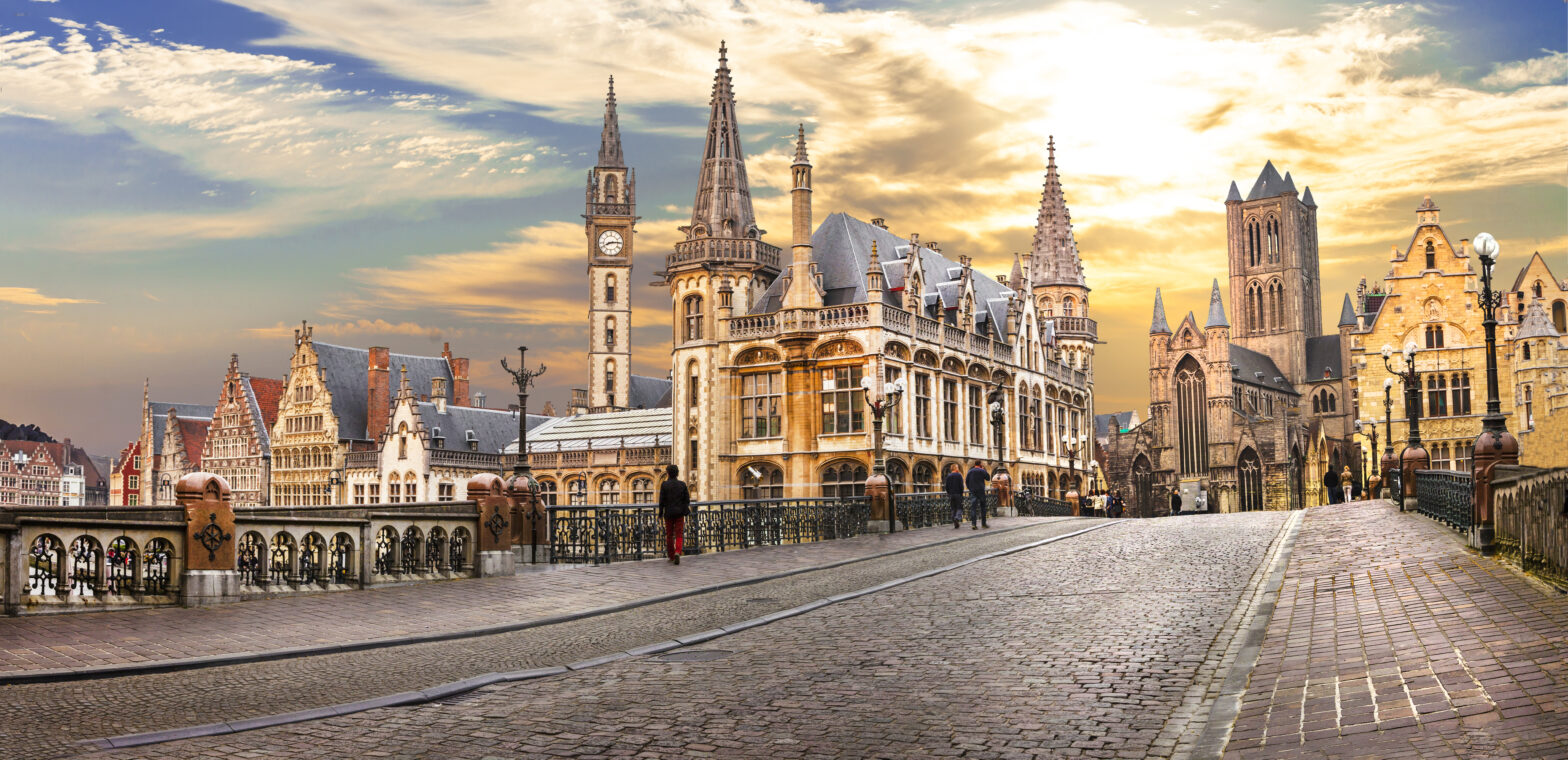A growing number of UK start-ups are expanding their business activities on an international scale and at an accelerating pace. A mere two-hour train ride away, Flanders – the autonomous northern region of Belgium – goes to great lengths to accommodate these internationalising businesses in a start-up ecosystem boosted by tight collaborations between research, government and industry players.
Entrepreneurial hub across the Channel
Only 300 kilometres from London, a vibrant start-up scene over 1,500 companies strong is flourishing in Flanders. According to American tech website VentureBeat, the city of Ghent is its start-up capital: a title it owes to flourishing business cases such as Showpad (sales software), Engager (marketing software), TeleAtlas (digital maps), Drupal (open source software) and Teamleader (CRM). Similar hubs can be found across the relatively small region, with the cities of Antwerp, Hasselt, Leuven and Mechelen completing the top five list of start-up hubs in Flanders.
B2B technology as a strong suit
What’s more, Flanders – and Belgium as a whole – has the largest number of B2B-oriented scale-ups in Europe. This puts it right on trend, as more than half of European tech scale-ups are business-to-business.
Belgium’s most active start-up sectors highlight this even further. Looking at the number of start-ups by industry in the region, the top five are: healthtech, business services, ICT, software development and media technology. Other B2B-oriented start-up sectors featuring among Flanders’ strong suits include fintech (sixth) and HR tech (seventh).
Reinforced by government, research and business
“A major factor contributing to Flanders’ fertile ground for tech start-ups is the support they get from research centres that tie together government, business and academic players”, explains Ben De Smit, economic and commercial counsellor at Flanders Investment & Trade in London.
“This steady cross-pollination is without a doubt one of the reasons why Flanders’ research system ranks 4th in Europe according to the most recent European Innovation Scoreboard. Our region’s strategic research centres – imec, VIB, VITO and Flanders Make – are globally renowned in their respective niches: nano- and digital tech; life sciences and biotech; cleantech, energy and materials; and product and process technology.”
Start-ups reap the rewards of this innovative ecosystem on an international scale. Take Bloomlife, a spin-off of Flanders’ imec research centre for micro- and nanotech and digital innovation, which ranks 3rd on the list of Europe’s most influential university research centres. The successful spin-off company develops smart wearables for pregnancy tracking and monitoring, and last year managed to raise another USD four million during a funding round in Silicon Valley.
Spearheading innovation, covering the costs
“Various cluster organisations – think of FlandersBio, Flanders’ Bike Valley and EnergyVille – also foster cross-industry innovation in Flanders and beyond”, De Smit adds.
“To further boost this, the government recently launched several spearhead clusters: long-term partnerships between companies, government agencies and research centres, working closely on projects that tie in with our region’s strengths. British start-ups and companies can greatly benefit from their network and expertise to drive innovation in fields such as chemicals, energy, materials, logistics and transport.”
Innovation is as much about knowledge as it is about money. Belgium offers access to grants and incentives to companies looking to set up their R&D activities in the region. The innovation income deduction stands out in particular, allowing companies to deduct up to 85 per cent of their net innovation earnings from their corporate tax base. Other benefits include R&D payroll tax incentives, tax credits for R&D investments and structural funding from Flanders Innovation & Entrepreneurship covering up to 80 per cent of the total cost of an R&D project.
Highlighted start-up sector: coining fintech in Flanders
One industry that seems to be suffering tremendously under the Brexit uncertainty is fintech – one of the most popular industries in the scale-up ecosystem. According to UK-based website Business Insider, investments in UK fintech have decreased following the result of the referendum in June 2016, while industry leaders have voiced their concerns over losing passporting rights to operate in the EU.
Flanders, however, makes a great showing, and currently ranks fifth on the list of European nations with the most fintech deals made. An important facilitator in this is the recently launched collaborative innovation platform B-Hive. In B-Hive, major banks, insurers, and market infrastructure players work together to build bridges with the start-up community and facilitate digital transformation.






